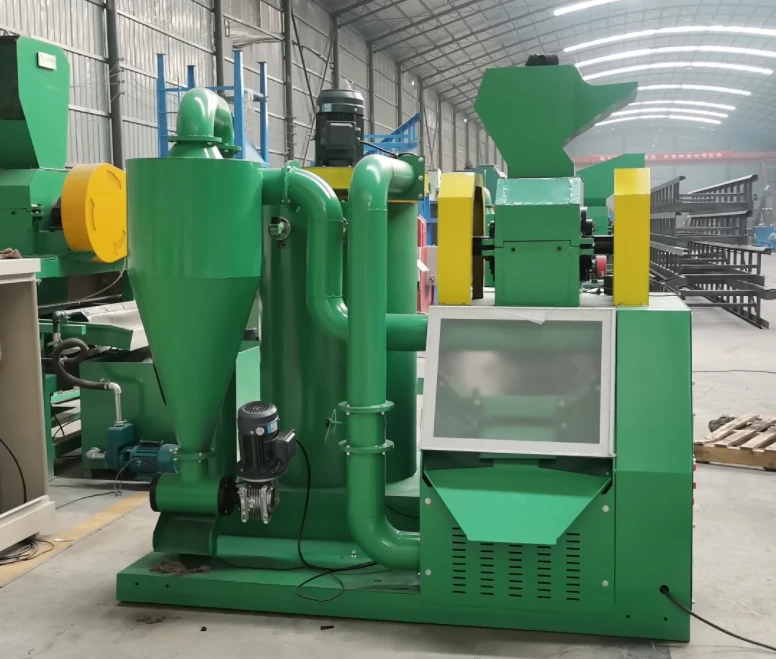

វិច្ឆិកា . 13, 2024 01:06 Back to list
How to Recycle Electronic Waste A Comprehensive Guide
In our rapidly advancing world, electronic devices are becoming an integral part of daily life. However, as technology evolves, so does the issue of electronic waste, commonly known as e-waste. E-waste includes everything from old computers and smartphones to household appliances like microwaves and televisions. Recycling electronic waste is crucial for various reasons, including environmental protection, resource conservation, and public health. This article will guide you on how to recycle electronic waste responsibly and efficiently.
Understanding E-Waste
First, it is essential to understand the components of e-waste. Electronic devices are made up of hazardous materials such as lead, mercury, and cadmium. When thrown away, these materials can leach into the soil and groundwater, posing significant health risks to humans and wildlife. Additionally, e-waste often contains valuable metals like gold, silver, and copper. Recycling helps recover these materials, reducing the need for mining and extraction, which can be harmful to the planet.
Step 1 Assess Your E-Waste
Before recycling, gather all the electronic devices you no longer use or need. This can include outdated computers, printers, mobile devices, and even larger appliances. Assess their condition Are they functional? Do they still serve a purpose? Devices that are still operational can often be donated or resold, extending their lifespan and reducing waste.
Step 2 Data Security
One crucial aspect of recycling electronic devices is ensuring your data privacy. Before recycling, it’s imperative to back up your data and then wipe your devices clean of any personal information. For smartphones and computers, you can perform a factory reset. However, for added security, consider using data destruction software that ensures your data cannot be recovered.

Step 3 Find Recycling Locations
Once your devices are prepared, it’s time to find a recycling center. Many local governments and municipalities offer e-waste recycling programs, often during designated collection days. Additionally, check with local electronics retailers, as many have take-back programs where you can return old devices when purchasing new ones. National chains like Best Buy and Staples have established robust recycling initiatives that can help you dispose of e-waste responsibly.
Step 4 Participate in E-Waste Drives
Many organizations run e-waste drives, where community members can drop off their unwanted electronics for safe disposal. These events are often held in partnership with certified e-waste recycling companies, ensuring that your devices are processed correctly. Keep an eye on local community boards, social media, and neighborhood newsletters for information about upcoming drives.
Step 5 Utilize E-Waste Recycling Services
If you are a business or have a large quantity of e-waste, consider hiring a professional e-waste recycling service. These companies specialize in the efficient and environmentally responsible disposal of electronic waste. They ensure that harmful materials are handled appropriately and valuable resources are recovered. Moreover, many of these services comply with local regulations and have certification to provide peace of mind regarding responsible practices.
Conclusion The Significance of E-Waste Recycling
Recycling electronic waste is an essential step in combating the growing issue of e-waste pollution. By following the steps outlined above, you can make a significant contribution to environmental conservation and public health. By thoughtfully managing your electronic devices—from assessment and data protection to finding proper recycling solutions—you are reducing waste and fostering a more sustainable future. The impact of recycling e-waste goes beyond individual actions; it positively influences our planet and the generations that follow. Make a commitment today to recycle responsibly and encourage others to do the same. Together, we can make a difference.
Latest news
Troubleshooting Common Eddy Separator Problems
NewsJul.04,2025
The Role of Metal Recycling Plants in Circular Economy
NewsJul.04,2025
The Impact of Recycling Line Pickers on Waste Management Costs
NewsJul.04,2025
Safety Features Every Metal Shredder Should Have
NewsJul.04,2025
How Industrial Shredders Improve Waste Management Systems
NewsJul.04,2025
How Cable Granulators Contribute to Sustainable Recycling
NewsJul.04,2025